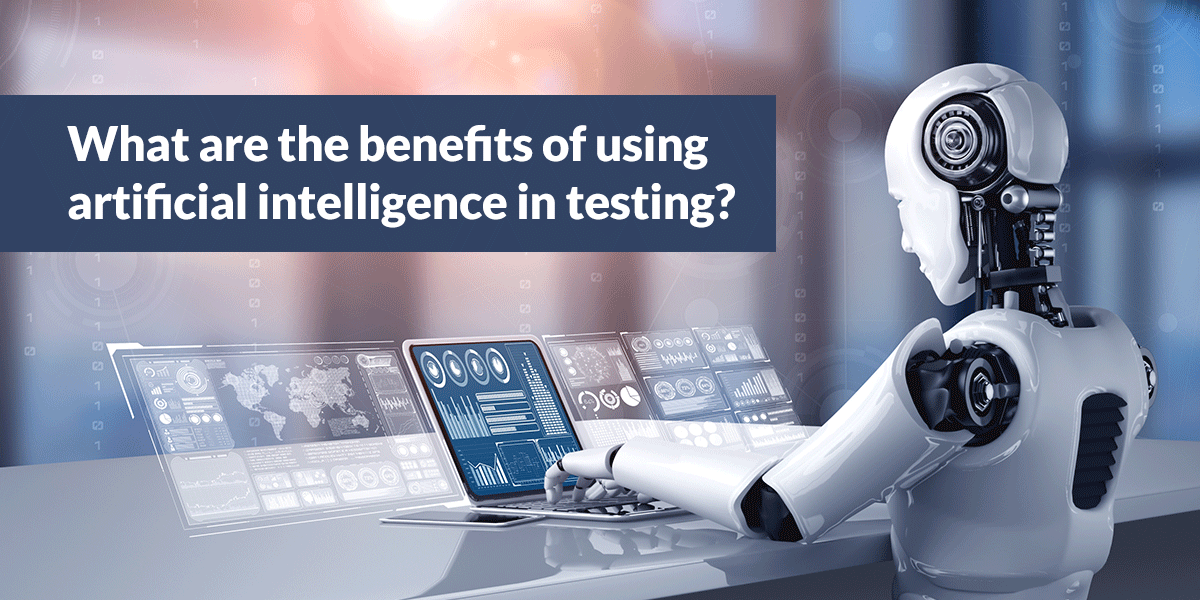In the software industry, the term "artificial intelligence" (A.I.) is often thrown around to describe a wide range of activities and technologies. However, when we talk about A.I. in the context of software testing, we're referring to a specific set of techniques that can be used to improve the efficiency and effectiveness of our tests. In this article, we'll take a look at some of the benefits that can be achieved through the use of A.I. in testing.
What is Artificial Intelligence (A.I.), and how is it used in testing?
Artificial Intelligence (A.I.) involves using computers to perform tasks that would normally require human intelligence, such as understanding natural language and recognizing objects. A.I. can be used for a variety of tasks, including test automation.
Test automation is the process of using software to execute tests automatically and compare the results to expected outcomes. A.I.-based test automation tools can mimic human behavior, such as clicking on links and filling out forms, to test the functionality of web applications. In addition, A.I. can be used to generate test data and optimize test suites for maximum coverage. By leveraging the power of A.I., testing can be made more efficient and effective.
7 Key benefits of using Artificial Intelligence (A.I.) in testing
There is no doubt that artificial intelligence (A.I.) is revolutionizing the field of software testing. By harnessing the power of machine learning, A.I.-powered testing tools are able to achieve levels of accuracy and efficiency that were previously unattainable. Here are 7 key benefits of using A.I. in testing:-
A.I. can significantly improve test coverage by identifying new test cases that would otherwise be missed.
A.I.-powered test tools can execute tests faster and more efficiently than human testers, resulting in reduced testing costs.
A.I.-based testing tools can help to improve the quality of tests by reducing errors and false positives.
A.I.-based test tools can provide real-time feedback on the progress of tests, allowing for early detection of issues.
A.I.-based test tools can help to speed up the process of creating and executing test plans by automatically generating test cases based on requirements analysis.
A.I.-based test tools can automatically generate detailed reports on the results of tests, including identified defects and areas for improvement.
A.I.-based test tools can help to identify potential areas of improvement in the product under test by analyzing past test results and application usage data.
How does Artificial Intelligence (A.I.) help with test automation?
A.I. can help with test automation in several ways.
First, it can be used to create and run test scripts. This can speed up the testing process by reducing the need for manual input.
Second, A.I. can be used to identify patterns in data that may indicate a bug or error. This can help to improve the accuracy of test results.
Finally, A.I. testing automation tools can provide insights that humans might miss, such as identifying which tests are most likely to find an error.
By using A.I., organizations can improve the efficiency and effectiveness of their test automation efforts.
What are some of the challenges associated with using Artificial Intelligence (A.I.) in testing?
A.I. is increasingly being used in various testing applications, including functional testing, load testing, and security testing. While A.I. can offer many benefits, such as increased accuracy and efficiency, there are also a number of challenges that need to be considered.
One challenge is that A.I. systems are often "black boxes" – it can be difficult to understand how they arrive at their decisions, and this opacity can make it difficult to trust the results. Additionally, A.I. systems need to be trained on data sets that are representative of the real-world application, which can be difficult to obtain.
Finally, A.I.-based testing tools are often very expensive, which can limit their use to only the most well-funded organizations. Despite these challenges, A.I. is likely to continue to play an important role in testing, as its benefits often outweigh its drawbacks.
How do you avoid bias when using Artificial Intelligence (A.I.) in testing?
As our world becomes increasingly reliant on technology, it is important to ensure that this technology is fair and unbiased. This is especially true of Artificial Intelligence (A.I.), which is increasingly being used to make decisions that can have a profound impact on people's lives. A.I. systems are designed to learn from data, but if that data is itself biased, then the A.I. system will simply reinforce and amplify those biases.
For example, consider a hypothetical A.I. system that is used to evaluate job applicants. If the system is trained on data from the past that contains inherent biases against certain groups of people, then those biases will be reflected in the A.I.'s decision-making.
To avoid bias in A.I., it is essential to use diverse and representative data sets when training the system. Additionally, it is important to understand how the A.I. system works and what factors it takes into account when making decisions. By taking these steps, we can help to ensure that A.I.-based decision-making is fair and unbiased.
How do you explain the results of an Artificial Intelligence (A.I.) test to stakeholders?
First, it is important to ensure that everyone understands the basics of AI ML testing. This means explaining what A.I. is and how it works.
Once everyone has a basic understanding, you can then move on to discussing the results of the test. Be sure to explain what the results mean in plain language and how they can be used to improve the A.I. system.
Finally, don't forget to address any questions or concerns that stakeholders may have.
What are some ethical considerations to keep in mind when using Artificial Intelligence (A.I.) in testing?
Artificial Intelligence (A.I.) is increasingly being used in a variety of testing contexts, from I.Q. tests to college admissions exams. While A.I. can offer many advantages, such as greater efficiency and accuracy, there are also a number of ethical considerations that need to be taken into account.
For example, A.I.-based testing could potentially be biased against certain groups of people, such as women or ethnic minorities. Additionally, A.I.-based testing could be used to unfairly advantage those who can afford to pay for private tutoring or test prep services.
Conclusion
Artificial intelligence has the potential to revolutionize software testing as we know it. By automating repetitive tasks and providing intelligent feedback, A.I. can help testers catch more bugs, save time, and improve the overall quality of their tests. If you're not already using A.I. in your testing process, now is the time to start.

